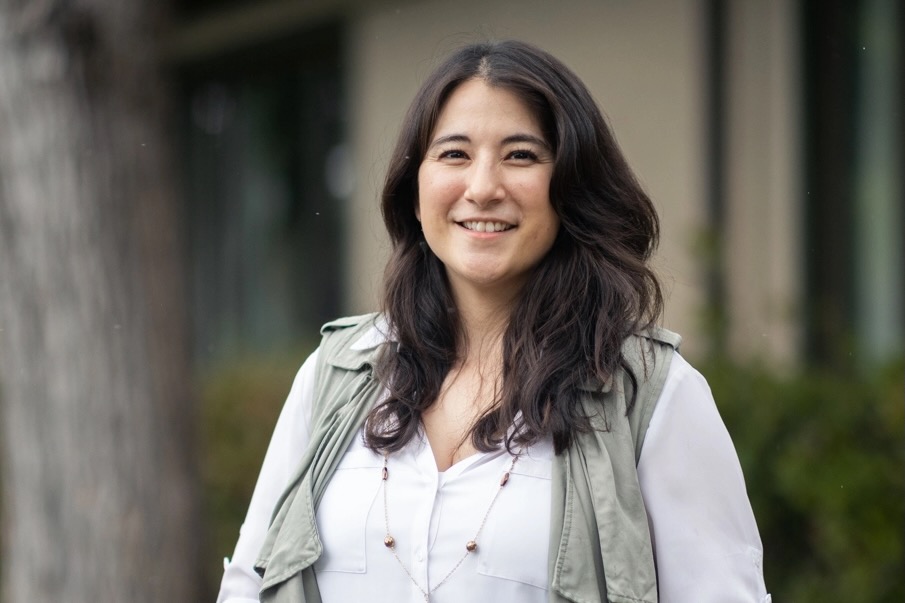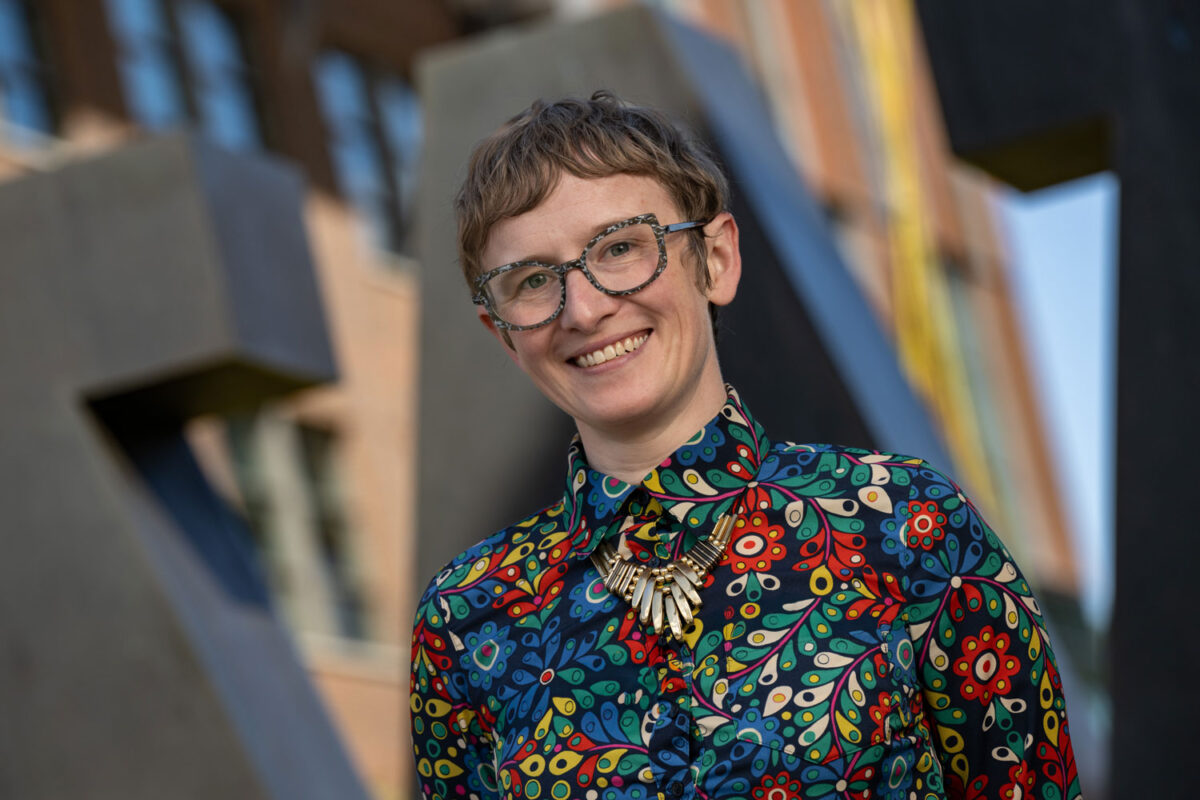Q. How do you try to innovate?
A. The one thing that is guaranteed about working in diversity, equity and inclusion is that the work is always changing and evolving. Whether due to research, world events or even your own lens through which you experience the work, something is always shifting. This means that the way I navigate the field is with an adaptive open approach.
I believe a big part of innovating is being a learner first. I watch, read and listen for different ways of approaching DEI and to deepen my understanding of others and other ways of thinking. I remain open to feedback and different thoughts around best practices, and look for ways to create efficiencies and increase our effectiveness around supporting the campus community.
Q. What is the core of your work?
A. The core of my work must be love. I don’t know how we do DEI work without love at the center of it and with courage to drive our actions. I think it can be easy to get discouraged or to lose hope when striving for progress toward a more just and equitable world. But I can think of a million ways I’ve seen love and kindness play out in my life through those I am lucky enough to receive it from.
Too often we are caught up in our own experiences of the world that we miss the chance for connection, or we push priorities that are at the expense of people which leads us to act in unkind, unloving ways. I do think love is the only way forward in this work and is the most impactful way to shift hearts and minds.
I lost my mother several years ago, but I am left with incredible lessons from the way she navigated this world with a lot of grace and love for people. I try to bring that to this world and embody that love she had for others. I am imperfect at it, but I try to remain open and compassionate even though it is hard at times.
That is where the courage comes in; when it would be easier to turn off our feelings and avoid the difficult conversations or to give in to anger, we must have the courage to radically engage with love and grace.
Q. How do any or all of UW Bothell’s three strategic priorities fit into your work?
A. Because of our specific campus charge, my team is most focused on strengthening DEI as our primary strategic focus, but I’ve seen how our work also informs or impacts other areas.
We spend a lot of time with campus partners to ensure we are all in alignment when thinking through student equity in a holistic way and are starting the work of building up staff and faculty capacity to better support the mission of DEI in their roles.
DEI should be infused throughout everyone’s work, but I do think there has to be an organizational throughline for DEI on campus that helps keep our work focused and aligned. That is where I am proud of us for our collaborative approach in working across campus to achieve this.
Q. What are you working on today?
A. I am working on several things right now as we start this academic year. One of the big ones is launching our programmatic offerings for the year. I am very excited about what we have in store for the year for students, staff and faculty. The focus this year is really on building our campus capacity to engage in intentional dialogue and gain skills for communicating across difference.
The other big priority is getting our team back to being fully staffed. We will be hiring two new members this quarter, which will be very exciting. We also want to be thoughtful about their hiring and onboarding so we can ensure they have a smooth experience starting at UW Bothell.
Q. How does who you are show up in your work?
A. I am grateful to work with a team where I feel like I can bring my full humanity to work. My Japanese and Korean heritage are very important to me, but from growing up in a rural community I actually did not have a strong sense of community within my identities until I reached college. I was a first-generation college student so on top of learning how to navigate a new system, I was engaging with so many new people from different cultures and backgrounds. I found a really solid community during my time at college with those who affirmed my identities.
My grandmother made me very proud of who I am and where my history comes from, and then through college I saw how important the communal aspect is to our well-being. A sense of belonging is integral to deepening our understanding of our self and others.
With my team, we try to create spaces and opportunities for students to explore their identities and to build their knowledge and skills for times when they encounter conflict or are engaging with those different from themselves.
I also readily identify as a nerd. I read a ton, and I love video games and anime, which I think are sometimes thought of as juvenile or immature hobbies. I think a lot of those stereotypes are being challenged now, which is why I actively bring them up and push on those notions.
It seems like as we age, we often lose our sense of play and don’t embrace fun the way we did when we were younger. Ever since hearing about the concept of “joy is an act of resistance” as a way to challenge and counter the rigid and oppressive ways we experience injustice, I have committed to making space for joy and fun in my life.
Q. Where is your favorite spot on campus, and why?
A. Besides the Student Diversity Center of course, I love the Gold Brew area in Commons Hall. It is well known with my team how much I love coffee so I am a frequent visitor at Gold Brew. The team there is always so friendly and welcoming to everyone. I also frequently run into people I know there so it ends up being a nice moment for a quick connection or catch up. I think it is such a great communal space.
Q. What is your favorite thing about working at UW Bothell?
A. I really love the people I work with. I laugh every day at work, we make space for joy, and we make space to honor when the hard things come up, too. We also have some really fantastic campus partners; they are so invested in this work and genuinely want to make a difference on campus, so they put in a lot of effort to support us and our work. It is an honor to know and work alongside them.
We spend a good portion of our daily lives with the people we work with, so I think it is important to be in a place where you feel you are invested with a sense care for those you work with and vice versa.




